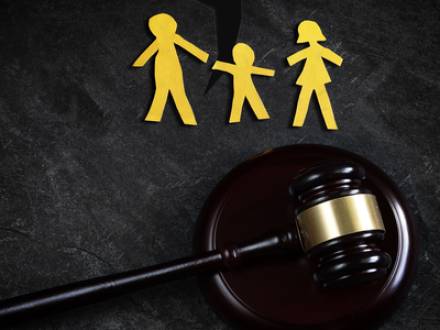Recent Blog Posts
Will Divorce Impact My Retirement Income in Illinois?
 Divorce is never simple, but for people aged 50 or older who are ending a marriage, the challenges can be incredibly complex. Also known as "gray divorce", one of the most pressing concerns in these later-in-life divorces is the impact on retirement income. Decades of shared finances, long-term investments, and retirement planning now need to be carefully untangled. The stakes are high for those nearing or already in retirement, as a reduced retirement income can affect quality of life, healthcare options, and even the ability to maintain independence. An experienced Illinois divorce attorney can help ensure that your retirement income is accurately assessed and divided to create a stable post-divorce future.
Divorce is never simple, but for people aged 50 or older who are ending a marriage, the challenges can be incredibly complex. Also known as "gray divorce", one of the most pressing concerns in these later-in-life divorces is the impact on retirement income. Decades of shared finances, long-term investments, and retirement planning now need to be carefully untangled. The stakes are high for those nearing or already in retirement, as a reduced retirement income can affect quality of life, healthcare options, and even the ability to maintain independence. An experienced Illinois divorce attorney can help ensure that your retirement income is accurately assessed and divided to create a stable post-divorce future.
How Are Pensions Divided in a Gray Divorce?
In Illinois, pensions earned during a marriage are considered marital property and are subject to division in divorce. State laws follow an equitable distribution approach, meaning that retirement assets are divided fairly, but not necessarily equally. Factors like the length of the marriage, each spouse’s financial needs, and future earning ability are all considered.
What To Do If Financial Circumstances Change Post-Divorce
 Life after divorce often brings a range of adjustments, especially when managing finances independently. In some cases, however, these financial circumstances can shift unexpectedly, creating new burdens that impact your ability to comply with the terms of your divorce decree.
Life after divorce often brings a range of adjustments, especially when managing finances independently. In some cases, however, these financial circumstances can shift unexpectedly, creating new burdens that impact your ability to comply with the terms of your divorce decree.
Events like sudden job loss, a medical emergency, or a considerable pay decrease can strain your resources, making it difficult to maintain agreed-upon financial obligations. An experienced Illinois family law attorney can help guide you through your options if you need to modify your divorce decree due to a significant financial change.
Can I Modify My Divorce Decree After a Financial Change?
To seek modification, you must demonstrate that the change impacts your ability to meet the financial obligations outlined in your original divorce decree. Illinois law allows for modifications to divorce decrees if there has been a substantial change in circumstances such as:
How Stay-at-Home Parents Can Protect Finances in Divorce
 Going through a divorce can be overwhelming, especially for stay-at-home parents who may not have had the same financial independence as their spouse. Without the security of a regular income or recent work experience, stay-at-home parents may feel particularly vulnerable as they face the uncertainties of life after divorce. This is why it is essential for stay-at-home parents to take proactive steps to protect their financial future. If you are a stay-at-home parent dealing with this significant life transition, an experienced Illinois divorce attorney can help you navigate these legal and economic challenges.
Going through a divorce can be overwhelming, especially for stay-at-home parents who may not have had the same financial independence as their spouse. Without the security of a regular income or recent work experience, stay-at-home parents may feel particularly vulnerable as they face the uncertainties of life after divorce. This is why it is essential for stay-at-home parents to take proactive steps to protect their financial future. If you are a stay-at-home parent dealing with this significant life transition, an experienced Illinois divorce attorney can help you navigate these legal and economic challenges.
What Are Your Spousal Maintenance Rights in Illinois?
Spousal maintenance, previously referred to as alimony, is a key consideration for stay-at-home parents who have sacrificed their earning potential to care for children or manage the household. In Illinois, spousal maintenance is determined based on several factors, including the length of the marriage, the financial needs of each spouse, and the standard of living established during the relationship.
Can a Child’s Preference Impact Custody Decisions?
 When parents go through a divorce, one of the most challenging aspects is deciding custody arrangements for their children. In some cases, a child may express a preference about which parent they want to live with, which can raise questions about whether the child’s opinion will influence the court’s decision. The court will consider many factors when determining custody, and the child’s preference is just one part of a broader analysis. An Illinois family law attorney can guide you through the custody process and help protect your child’s well-being.
When parents go through a divorce, one of the most challenging aspects is deciding custody arrangements for their children. In some cases, a child may express a preference about which parent they want to live with, which can raise questions about whether the child’s opinion will influence the court’s decision. The court will consider many factors when determining custody, and the child’s preference is just one part of a broader analysis. An Illinois family law attorney can guide you through the custody process and help protect your child’s well-being.
Does a Child’s Preference Play a Role in Custody Decisions?
A child’s preference can be a factor in custody decisions, but it is not the only consideration. Under Illinois law, the court prioritizes the child’s best interests, examining several other factors in addition to the child’s preferences. Section 750 ILCS 5/602.5 of the Illinois Marriage and Dissolution of Marriage Act outlines key elements that courts must evaluate when deciding custody, referred to as the "allocation of parental responsibilities."
Do Children Have a Say in Illinois Custody Decisions?
 In custody disputes, the question of whether a child can choose where to live may arise, which can be an emotional and complicated issue for parents. Many wonder if their child’s voice matters in court and, if so, how much influence their preferences hold in the eyes of the law. While children’s wishes are considered in Illinois custody cases, they are only part of a broader picture that focuses on the child’s best interests.
In custody disputes, the question of whether a child can choose where to live may arise, which can be an emotional and complicated issue for parents. Many wonder if their child’s voice matters in court and, if so, how much influence their preferences hold in the eyes of the law. While children’s wishes are considered in Illinois custody cases, they are only part of a broader picture that focuses on the child’s best interests.
Understanding how a child’s choice fits into a custody decision can help parents navigate these challenging times. A knowledgeable Illinois family law attorney can offer the support you need to advocate for a custody arrangement that meets your child’s best interests.
At What Age Can a Child's Choice Influence Custody?
In Illinois, there is no specific age at which a child is automatically granted the right to choose where they want to live. The courts tend to give more weight to a child’s preferences as he or she matures. However, it is important to note that even with older children, the court will not base its decision solely on their wishes. This assessment is generally made on a case-by-case basis, considering each child’s age, maturity level, and understanding of the custody process.
Can Paternity Be Disputed After Birth in Illinois?
 Paternity is an important legal matter that determines a child’s biological father. While many paternity issues are resolved during pregnancy or shortly after birth, situations arise where a parent may want to dispute paternity well after a child has been born. To navigate this complex issue, it is essential for parents to understand the legal steps involved in disputing paternity. An experienced Illinois family law attorney can help guide you through the process and represent your best interests in court.
Paternity is an important legal matter that determines a child’s biological father. While many paternity issues are resolved during pregnancy or shortly after birth, situations arise where a parent may want to dispute paternity well after a child has been born. To navigate this complex issue, it is essential for parents to understand the legal steps involved in disputing paternity. An experienced Illinois family law attorney can help guide you through the process and represent your best interests in court.
What Are the Reasons for Disputing Paternity?
Several reasons may lead someone to dispute paternity after birth. Common situations include:
-
The presumed father discovers new evidence suggesting he is not the biological father.
-
Genetic testing reveals that another man may be the biological father.
-
A mother believes someone else is the child’s biological father but needs legal confirmation.
Who Keeps the House in a High-Asset Divorce?
 Dividing property during a divorce can be complicated, especially when high-value assets like real estate are involved. The couple’s home is often one of their most valuable assets, and determining who keeps the house in a high-asset divorce requires careful deliberation.
Dividing property during a divorce can be complicated, especially when high-value assets like real estate are involved. The couple’s home is often one of their most valuable assets, and determining who keeps the house in a high-asset divorce requires careful deliberation.
Without proper guidance, it is easy for one spouse to feel they are losing more than just a home — he or she could be left with an unfair portion of a couple’s shared financial security. An experienced Illinois divorce attorney can help you navigate the difficulties of property division and ensure that your assets are properly distributed.
How Is Real Estate Divided in a High-Asset Divorce?
In a high-asset divorce, Illinois law follows the principle of equitable distribution. This means that property is not necessarily divided equally, but instead, fairly based on several factors. When it comes to real estate, such as the marital home, the court considers:
How To Deal with Parental Alienation in Illinois Custody Cases
 Parental alienation is a painful and complicated issue that can arise during custody disputes when one parent intentionally harms the child’s relationship with the other parent. It can involve bad-mouthing, blaming, or even preventing communication between the child and the other parent. The alienating parent’s goal is typically to damage the relationship between the child and the targeted parent in order to influence custody arrangements. If you suspect parental alienation is happening with your child, an Illinois family law attorney can guide you through the legal process while protecting your rights.
Parental alienation is a painful and complicated issue that can arise during custody disputes when one parent intentionally harms the child’s relationship with the other parent. It can involve bad-mouthing, blaming, or even preventing communication between the child and the other parent. The alienating parent’s goal is typically to damage the relationship between the child and the targeted parent in order to influence custody arrangements. If you suspect parental alienation is happening with your child, an Illinois family law attorney can guide you through the legal process while protecting your rights.
What Are the Signs of Parental Alienation?
Parental alienation can be subtle or overt, but it can seriously affect a child’s emotional and mental health. It is important to watch for common warning signs, including:
-
The child expressing unjustified anger or fear toward one parent
Modifying Child Support for a Substantial Change in Circumstances
 Even after taking all of the necessary steps to ensure a child support order that accounts for all of your children’s needs, things can change. After all, it has been said the only constant thing in life is change. When your child’s needs or your financial situation has changed, you can request a review of your child support order to determine whether a modification is necessary. A judge will usually only find a modification necessary if they determine that a "substantial change in circumstances" has occurred. But what does that actually mean? Understanding what the court considers a substantial change in circumstances can help you determine whether or not you should request a modification to your child support order.
Even after taking all of the necessary steps to ensure a child support order that accounts for all of your children’s needs, things can change. After all, it has been said the only constant thing in life is change. When your child’s needs or your financial situation has changed, you can request a review of your child support order to determine whether a modification is necessary. A judge will usually only find a modification necessary if they determine that a "substantial change in circumstances" has occurred. But what does that actually mean? Understanding what the court considers a substantial change in circumstances can help you determine whether or not you should request a modification to your child support order.
How Are Child Support Payments Set in Illinois?
In Illinois, child support is calculated using an income shares model, which uses the combined income of both parents. The state's guidelines provide a formula based on the number of children and the parents' financial resources. Each parent's share of the child support obligation is determined by that parent's percentage of the combined income. Other factors, such as health insurance costs, childcare expenses, and the amount of time each parent spends with the child, may also influence the calculation. Illinois courts aim to ensure that the child receives the same proportion of parental income they would have if the parents were living together, with the goal of maintaining the child's standard of living.
Should You File for Divorce First in Illinois?
 When a marriage ends, the decision to pursue a divorce is often filled with uncertainty and emotional difficulty. One of the initial questions that may arise is whether to file for divorce first or wait for the other spouse to take that step. This decision is more important than many people realize, as filing first can offer strategic advantages for legal positioning and financial protections. A skilled Illinois family law attorney can help you navigate this complex decision.
When a marriage ends, the decision to pursue a divorce is often filled with uncertainty and emotional difficulty. One of the initial questions that may arise is whether to file for divorce first or wait for the other spouse to take that step. This decision is more important than many people realize, as filing first can offer strategic advantages for legal positioning and financial protections. A skilled Illinois family law attorney can help you navigate this complex decision.
What Are the Legal Advantages of Filing for Divorce First?
Being the first to file for divorce can offer significant legal benefits, especially when it comes to deciding preferred terms for matters such as child custody, spousal support, and property division. Other possible advantages include:
-
Choosing Jurisdiction: In some cases, filing first allows you to choose the county where the case will be heard, which can be an advantage in terms of travel, convenience, and even local court rules.












